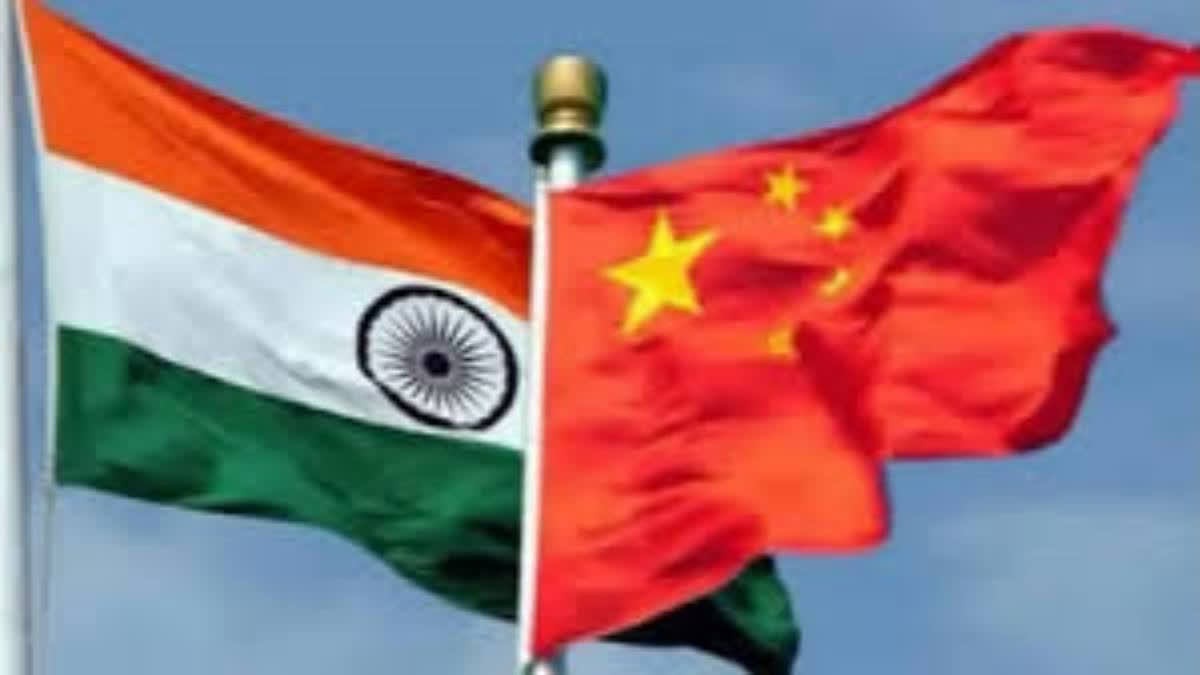New Delhi: Despite the ongoing challenges both nations face in their efforts to improve bilateral relations, particularly regarding persistent border disputes, China has once again taken a provocative step by establishing two new counties in Xinjiang. Notably, one of these counties encompasses a significant portion of Indian territory that China unlawfully occupied in Aksai Chin following its annexation of Tibet in the mid-20th century. This move raises serious concerns about the sincerity of China's intentions in the normalisation process.
The growing evidence that China is untrustworthy is becoming increasingly clear, as their recent withdrawal and newfound interest in strengthening relations with India appear to be mere strategic manoeuvres.
Reacting strongly, India’s External Affairs Ministry spokesperson Randhir Jaiswal on Friday, said, “We have seen the announcement about the establishment of two new counties in Hotan Prefecture of China. Parts of the jurisdiction of these so-called counties fall in India's Union Territory of Ladakh."
“We have never accepted the illegal Chinese occupation of Indian territory in this area. The creation of new counties will neither have a bearing on India's long-standing and consistent position regarding our sovereignty over the area nor lend legitimacy to China's illegal and forcible occupation of the same. We have lodged a solemn protest with the Chinese side through diplomatic channels”, said Jaiswal at the weekly media briefing.
In a conversation with ETV Bharat, Jayadev Ranade, a security expert and a China analyst, said there is no doubt about the lack of trust in the Chinese actions, as they continue to assert their territorial claims in Ladakh and other regions. The recent disengagement in certain areas is limited and appears to be a tactical manoeuvre by the Chinese.
“We have yet to see a true de-escalation or a reduction of troops, which seems unlikely since they have established many smaller posts throughout the region. These posts would need to be removed, and it seems they have no intention of doing so. This situation is merely a way for them to buy time, and their territorial ambitions remain unchanged, the expert added.
He said, “A significant concern is the construction of dams on the Brahmaputra River. This is a major issue, as they are systematically advancing a large project. We still lack clear information on how they plan to divert the river—whether through mini-nuclear explosions or a series of dams. They intend to build around 17 dams along the Brahmaputra and create a large power station at the Great Bend, which will supply electricity to southern China, including the Qinghai, Sichuan, and parts of Yunnan provinces. While this may seem beneficial, it will impact the water flow of the Brahmaputra, which is already facing severe depletion. Additionally, the construction activities are contributing to rising temperatures in Tibet”.
Ranade noted that the India-China relationship is not getting better anytime soon. The expert emphasised that the dam on the Brahmaputra would give the Chinese more leverage over us. The boundary issue will persist, and Xi Jinping has made it clear that he sees a territorial problem. “Everything else is just tactics. I expect his successors to follow the same approach. Unless we take strong action and stay resolute, this situation will continue. Moreover, we should closely examine our trade to ensure we don't become overly reliant on them in critical areas”, said Ranade.
Another expert, Jabin T Jacob, Associate Professor of International Relations and Director, Centre of Excellence for Himalayan Studies, Shiv Nadar University, Delhi told ETV Bharat that the Chinese action coming so soon after the recent India-China Special Representatives' meeting and the earlier disengagement process raises questions about Chinese sincerity in improving India-China relations.
He mentioned that the disengagement process is a limited one as it is. “It is not as if the latest Chinese action makes it any more onerous to ensure disengagement. Trust has been at rock bottom since Galwan. The Indian side has always said that it needed to verify the situation on the ground”, he added.
China has been actively reinforcing its claims over Indian territory in recent years, and the most recent development occurred just 10 days after the Special Representatives from both countries resumed boundary negotiations, which had been on hold for five years.
According to reports, the People's Government of Xinjiang Uygur Autonomous Region in northwest China has announced the creation of two new counties: He’an County and Hekang County. Hongliu and Xeyidula townships will serve as the administrative centres for He'an and Hekang, respectively. He'an County covers a significant area of 38,000 square kilometres, which India claims China is occupying illegally in Aksai Chin.
On Dec 18, 2024, the 23rd Meeting of the Special Representatives (SRs) of India and China, led by Ajit Doval, National Security Advisor of India, and Wang Yi, Member of the Political Bureau of the Communist Party of China (CPC) Central Committee and Minister of Foreign Affairs, was held in Beijing.
The Special Representatives met in accordance with the decision taken during the recent meeting between Prime Minister Modi and President Xi Jinping in Kazan for them to meet at an early date to oversee the management of peace & tranquillity in border areas and to explore a fair, reasonable and mutually acceptable solution to the boundary question. The Special Representatives reiterated the importance of maintaining a political perspective of the overall bilateral relationship while seeking a fair, reasonable and mutually acceptable framework for the settlement of the boundary question and resolved to inject more vitality into this process. This was the first meeting of the SRs since frictions had emerged in the Western Sector of the India-China border areas in 2020. The SRs positively affirmed the implementation of the latest disengagement agreement of October 2024, resulting in patrolling and grazing in relevant areas.
Read more: Will Protect Our Interests: India On China’s Plan To Build Dam On Brahmaputra



